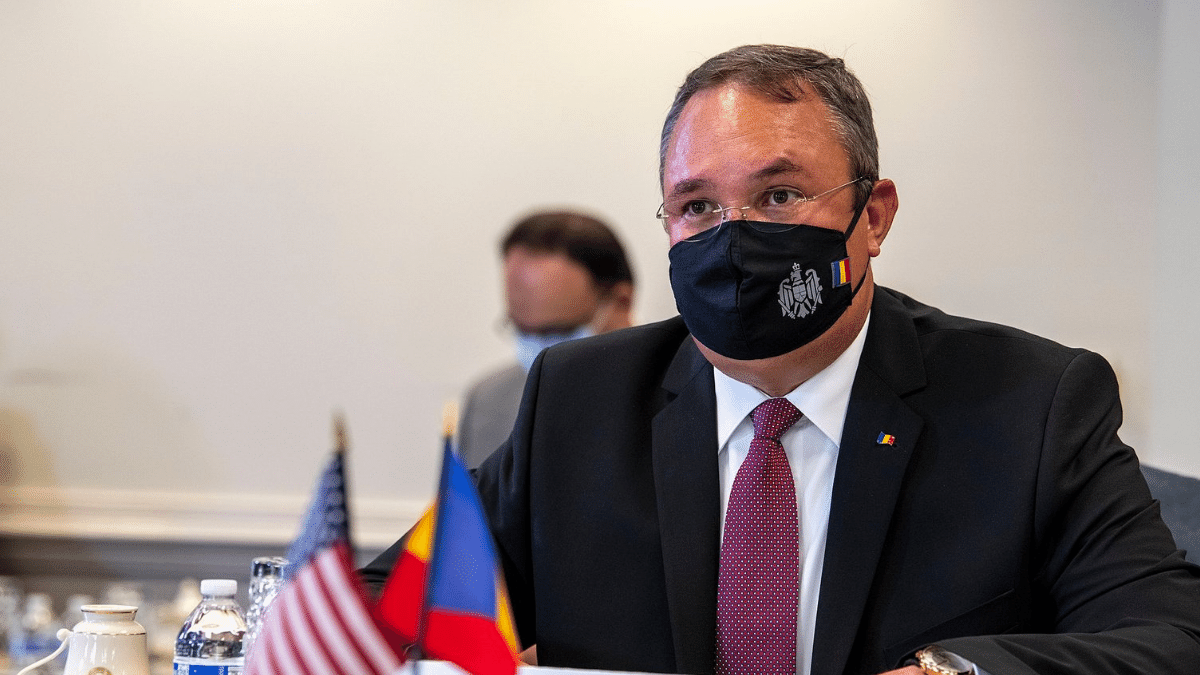How Romania’s Prime Minister was “Cleared” of Plagiarism

In January 2022, just months after taking the role of Prime Minister in Romania, Nicolae Ciucă faced a significant plagiarism scandal.
According to reporter Emilia Şercan (link in Romanian), some 42 pages of Ciucă’s 38-page 2013 dissertation from the National Defense University in Bucharest were plagiarized from outside sources.
Ciucă, for his part, denied the plagiarism and said that his dissertation was legitimate. However, prosecutors began to build a copyright infringement case against Ciucă. The case made it before the Bucharest Court of Appeal, which struck down the claims involving Ciucă’s work.
Theoretically, this should have been the end of the plagiarism story. With his name cleared and his degree safe, the matters should be resolved. However, it’s really just the beginning.
According to an investigation by local news outlet G4Media, the process through which Ciucă’s work was cleared was anything but fair or impartial.
According to G4Media, the case was supposed to go before a random panel at the court, however, through a process known as “cover”, the case was “directed” toward a judge with strong affiliates with Ciucă, raising serious questions about the impartiality of the proceedings.
The process worked by first attaching the case to an unrelated legal dispute. A woman was appealing a decision against the Immigration Directorate and was going before a judge friendly to Ciucă.
Rather than going to a random panel, Ciucă’s case was appended to that unrelated matter so that the judge would be known. Then, the original case was reassigned, leaving only Ciucă’s case.
The judge in question, Marius Iosif, resigned shortly after the revelations came to light. Furthermore, someone entered the court system and deleted the evidence in question, though G4Media retains screenshots.
The investigation marks a stark blow to the efforts to improve the country’s reputation when it comes to plagiarism and academic integrity. However, it is far from the only blow that’s happened this year.
Romania’s Ongoing Battles
Romania’s high-profile battles with plagiarism are not new. In fact, the struggle has been going on for more than a decade.
In 2012, Prime Minister Victor Ponta and several of his ministers faced allegations that they had committed plagiarism in their academic work. Though several of the ministers resigned, Ponta held on to his position until losing in an election. However, he did eventually give up his doctorate though he continued to deny wrongdoing.
Since then, academics in the country have been working diligently to try and turn around the country’s reputation as being easy on plagiarism. Those efforts have born significant fruit when it comes to reducing plagiarism and other academic integrity violations taking place in the classroom. This is evidenced by lowering pass rates for certain exams and greater awareness of the issues.
However, the country has still had significant trouble with dealing with previous plagiarism, such as what Ciucă is accused of.
Unfortunately, dealing with those previous cases of plagiarism just got much more difficult in Romania.
Last month, the country’s Constitutional Court handed down a ruling greatly limited when the Ministry of Education can revoke doctoral degrees. Under this ruling, degrees can only be revoked one of two ways.
- Prior to When it has “Legal Effects”: According to experts in the country, this would have to take place before the Minister of Education has signed the order awarding the degree.
- With a Definitive Court Verdict: This case can only be filed by the educational institution that awarded the degree or by the person plagiarized. Furthermore, this legal action must be brought within one year of the degree being awarded and could take many years to unfold.
In short, it is nearly impossible to revoke a doctorate in Romania under these rules. This means individuals like Ciucă are pretty much safe from ever losing their degree, no matter how much plagiarism was in their dissertation.
In the midst of this, Romanian students are continuing to work and study, even as their country’s academic reputation is repeatedly ruined on the international stage.
The Real Losers
The ones that suffer the most here are the students working hard inside Romania’s universities.
Though academics in the country are making great strides within the academic system, the courts have made it clear that the degrees already awarded are likely to stay there, regardless of how significant the issues are with them.
Combine this with the blatant corruption in the Ciucă case, and the message is pretty clear: The Romanian government has decided to tolerate plagiarism.
This is very different from most countries. In the most of the rest of the world, the government leaves these issues to academia. In the United States, for example, courts are very reluctant to get involved in cases of academic dishonesty, preferring to leave such matters to the academic tribunal system.
However, here, the government is getting involved very directly and using the courts to do so. This backs academics into a corner, making it so that they can only focus on current students and can do nothing to correct mistakes and wrongdoings of the past.
This means that stories like Ciucă aren’t going to just capture headlines, but remain black eyes on the country’s academic system for decades to come. However, this isn’t likely to stop those stories because, as we’ve seen in the United States, political opponents love to use plagiarism scandals as a means to discredit opponents.
So, it is very likely that plagiarism stories from Romania will continue to grab international headlines, but academics within the country will have little recourse to protect the country’s reputation or integrity.
To the students currently studying in the country, that is a significant blow, as the government seems not to care if it cements the nation’s reputation as a haven for plagiarists.
Bottom Line
One of the key purposes of academic integrity is to ensure that students have done the required work and obtained the required knowledge to receive the degrees they have.
Unfortunately, when an institution earns a reputation for tolerating plagiarism, it casts doubt on all the degrees it has awarded. This is a problem not just on a school level, but on a national one.
Though other nations, such as Germany, have had spates of high-profile plagiarism scandals, Romania is unique in that the government and the courts are actively and publicly protecting plagiarists.
Where Germany’s international reputation remains strong despite the high-profile plagiarism scandals, Romania has gone on the public in trying to protect plagiarists.
While it is true that plagiarism scandals have caused more than some chaos, trading integrity for stability doesn’t actually do any good. Even if degrees aren’t revoked, the allegations will still be damaging and the harm done to the reputation of the schools in the country will be severe.
My thoughts are with the teachers and administrators who are working to address academic integrity in Romania’s school. They face a long, uphill battle, and their nation’s government is not making it any easier.
Want to Reuse or Republish this Content?
If you want to feature this article in your site, classroom or elsewhere, just let us know! We usually grant permission within 24 hours.
